The Pollinating Regeneration Program is centred on community leadership, since the ideation. Learn why this approach is so important for the community leadership and governance.
Author: Ana Rosa.
Leia em português.
Increasing positive impact, that’s what’s our network is all about. Our Pollinating Regeneration program started by bringing people together to make decisions. After all, who better to decide what projects would best (and most effectively) help the community, then those who live there? Surprisingly, this was a new experience for many of them. But it didn’t take long to become a common practice.
The Pollinating Regeneration Program listens to the communities sharing their context, challenges and proposed solutions. Based on that, some of their solution ideas will be turned into reality, from planning to execution. It all starts with an ideation phase, together with the communities.
For this program to be possible, the communities need a safe space where they feel comfortable to share their reality, challenges and solution ideas. Meli builds such space as an impact network. Already more than 50 communities are engaged in the network and via a social platform, they constantly share their stories, bring questions, celebrate their biodiversity and much more.
It’s crucial for Meli to connect and listen the communities of the network, so he hosted the first Meeting Meli Brazil (I Encontro: Associação Rede Meli Brasil). Leaders from 8 indigenous and local communities participated met in São Luís during 14th to 16th November of 2022, with activities strengthening their leadership and governance.
“It [the Ideas Workshop] was great!
Francisco Guajajara from Zutwia village, Arariboia Indigenous Land.
It was the first time I participated in something like that.”

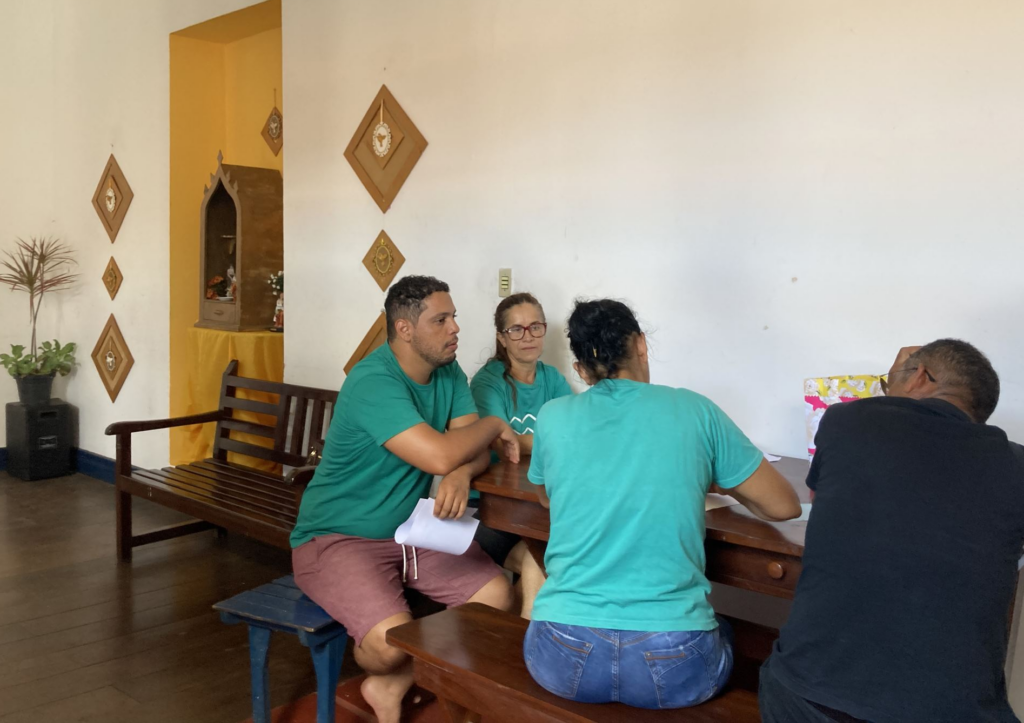

Pictures: Groups sharing their project ideas in the first ever Ideas Workshop, during I Encontro Rede Meli Brasil, in São Luís, November 2022.
During the event, the concept of Ideas Workshops was first tested. Having a group of people discussing their ideas was an inspiring experience. Such activities are very needed to strengthen the communities’ leadership, governance and even project management. The community leaders in the event were prepared to bring this methodology to their own communities and strengthen their own mutual understanding about their challenges and solutions, share the decision about their priorities and be ready to have their voices amplified.
The next step was to see this methodology taking place while happening fully in an indigenous and/or local community. For that, Meli visited a Xikin indigenous community and the Frei Henri and the Deus te Ama peasant communities.

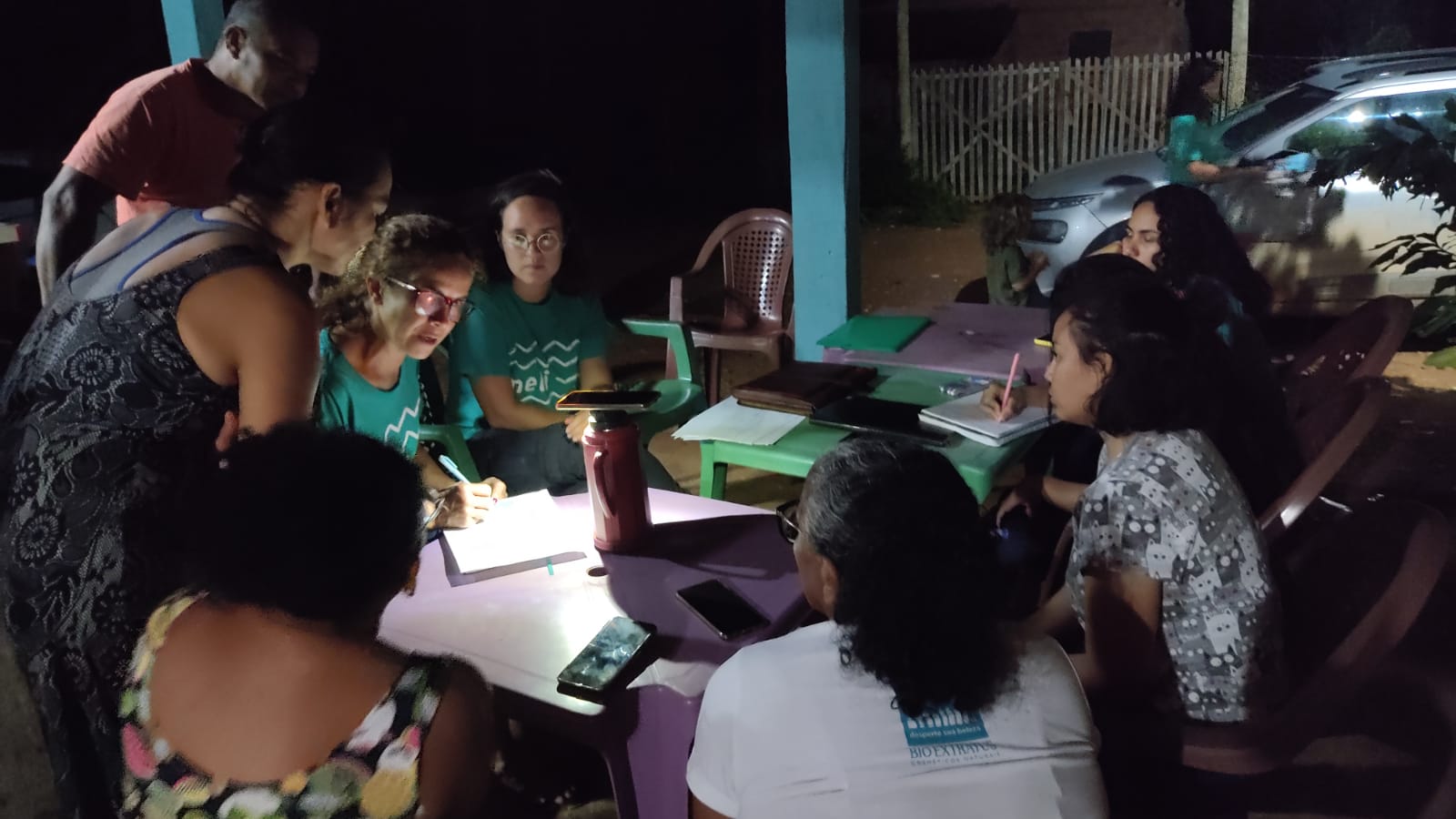
The feedback from the Xikrin indigenous community made clear the focus of the methodology should be their active ideas and not the problems they are tired of repeating. They see their challenges being politically used, without bringing concrete solutions. That’s why our methodology first highlights the what and how questions, the why comes later.
A goal of the methodology was to prepare community members to lead the activities and engage their group. With that in mind, Reni Lourenço, one of the community leaders who attended the event in São Luís, brought this methodology to Deus te Ama peasant community and to her own community (On December 2nd and 4th, respectively).
The Ideas Workshop is more than a collection of project possibilities, it’s about the exchange of ideas of a group strengthening its bound. To bring the methodology to an even larger number of communities, we hosted two online workshops training community leaders to bring these activities to their communities.
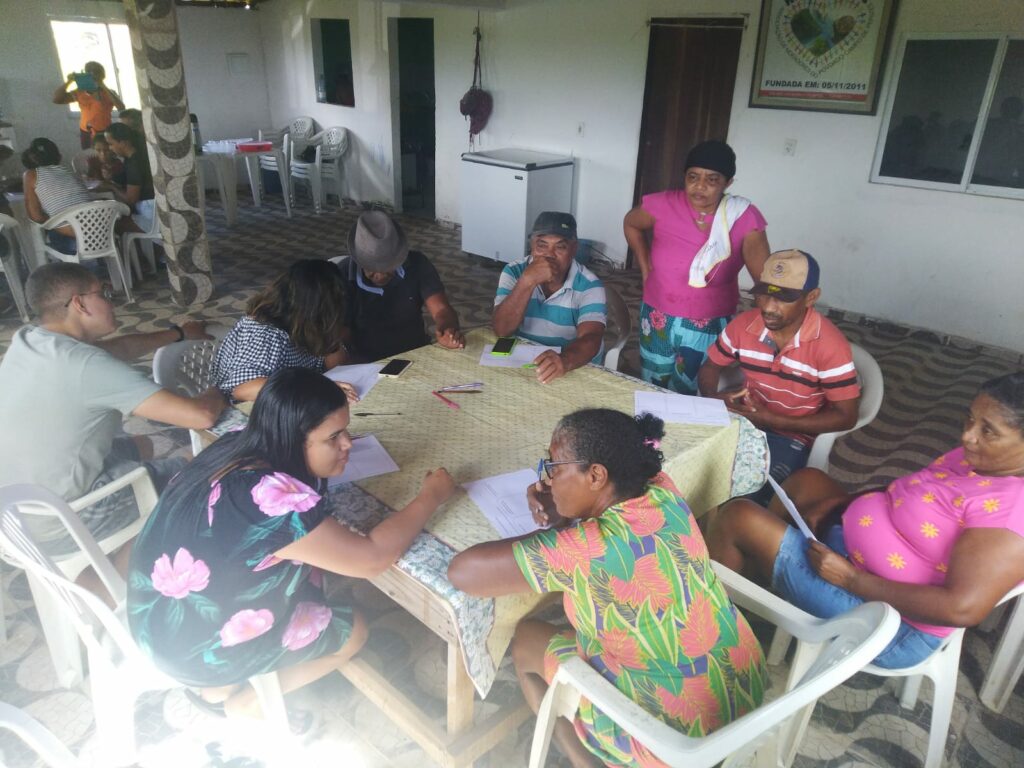
“The experience of an Ideas Workshop was new for us. We might have talked about project ideas before, but we’ve never stopped to reflect on and prioritise them. Now I suggest this methodology to all the neighbouring communities. Being recognised as decision-makers and putting our ideas in the paper strengthens our vision and our desire to pursue our goals”
Ana Maria from Campo de Perizes foraging community.
Picture: Ideas workshop at Campo de Perizes foraging community, in Maranhão, fully community-led.
“The group was very happy to get together to discuss and select project ideas that we think are important for our group at the moment. We talked about how to continue the environmental work we do, including environmental education. We talked about our goals and planning for the future in the area where we work collectively. If our project is approved, it will enable more visitors and collaborators, which will be a strong incentive for us to continue seeking more partnerships.”
Olinda from Pataxó Hãhãhãe indigenous community
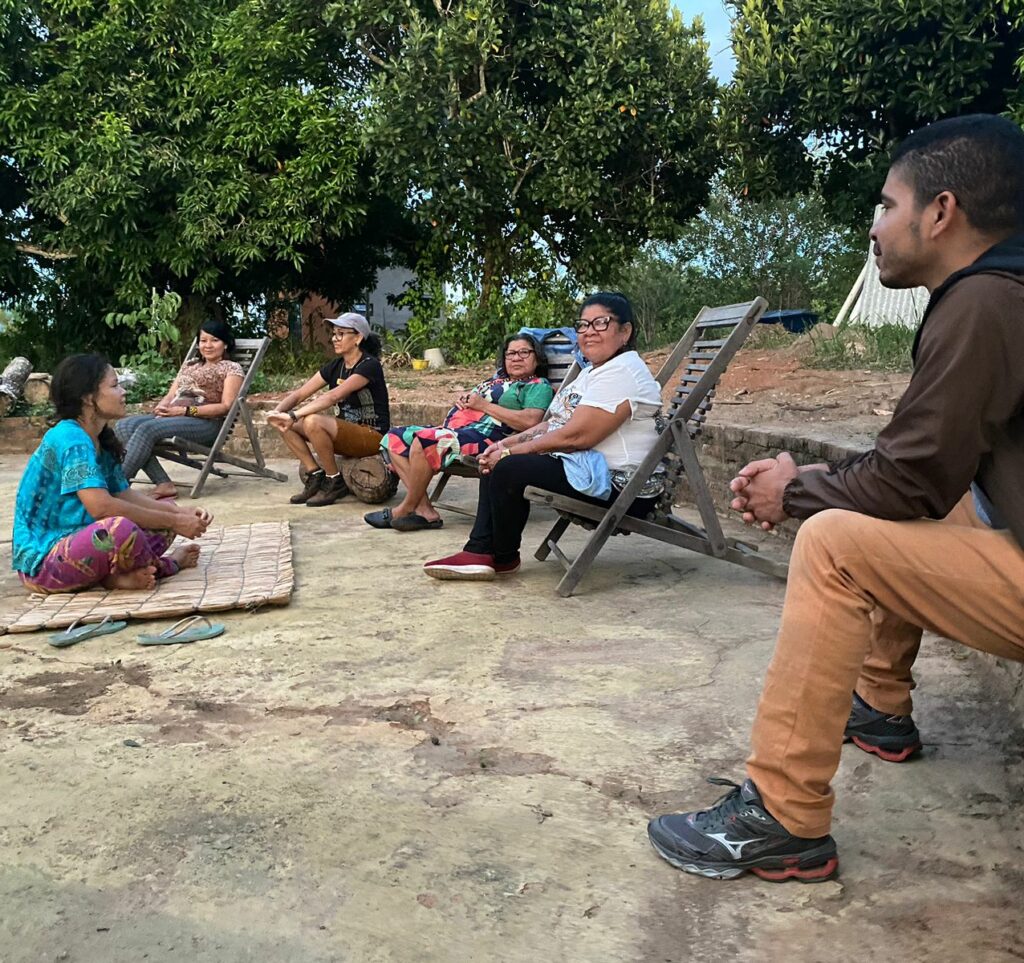
Picture: Ideas workshop at Pataxó Hãhãhãe indigenous community, in Bahia, fully community-led.
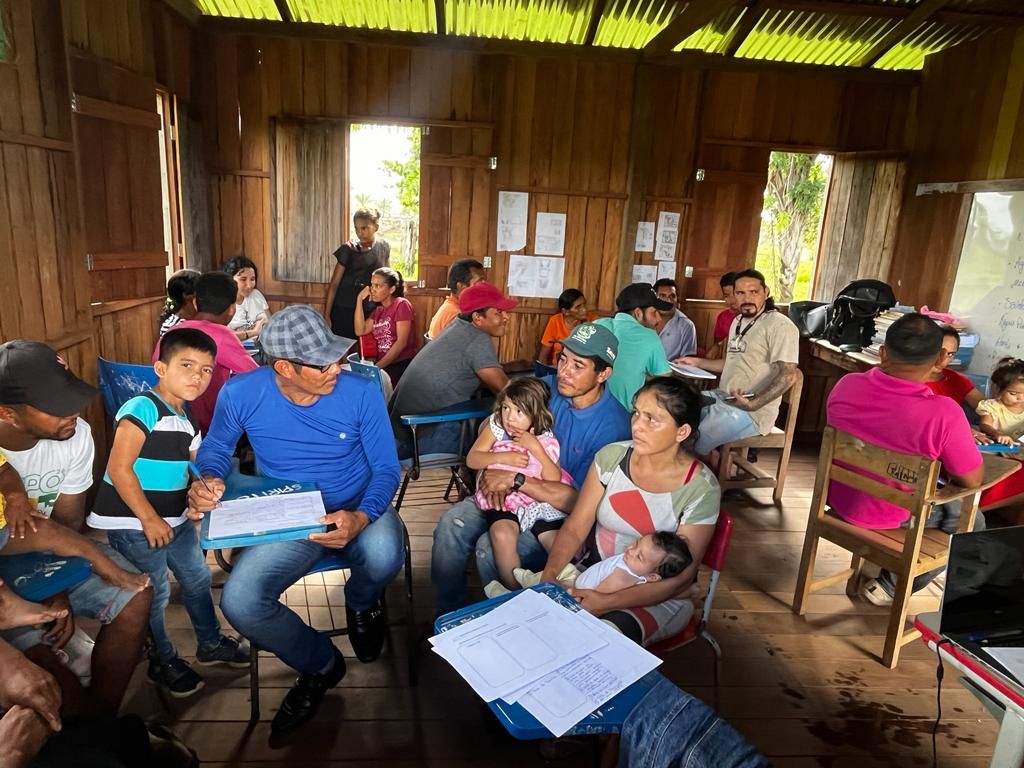
“The experience of holding the Ideas Workshop in Boca do Acre indigenous land, at Kamapã Village, exceeded my expectations. The community received us very well, and understood the goals of the activity. I managed to transmit the methodology in a simple language and all participants were able to talk about the main problems and solutions they wanted for the village.”
Kukuy Apurinã from Cumicuã indigenous community
Picture: Ideas workshop at Kamapã indigenous community, in Amazonas, fully community-led.
Community leaders were prepared to bring the Ideas Workshops to their own communities in two groups according to availability. The online workshops happened on January 18th and 31st hosting 16 and 17 persons each. That’s how a total of 22 communities got engaged and brought more than 100 ideas of projects they would like to develop. They also prioritised the project ideas, in a community shared decision-making.
To receive the pictures from the communities that hosted the workshops, it was an impressive to see how many persons were a part of Meli’s decision-making process. From states we are already active in, such as Maranhão and Pará, but also communities from Brazilian states new to our activities: Amazonas, Bahia, Piauí and Acre.
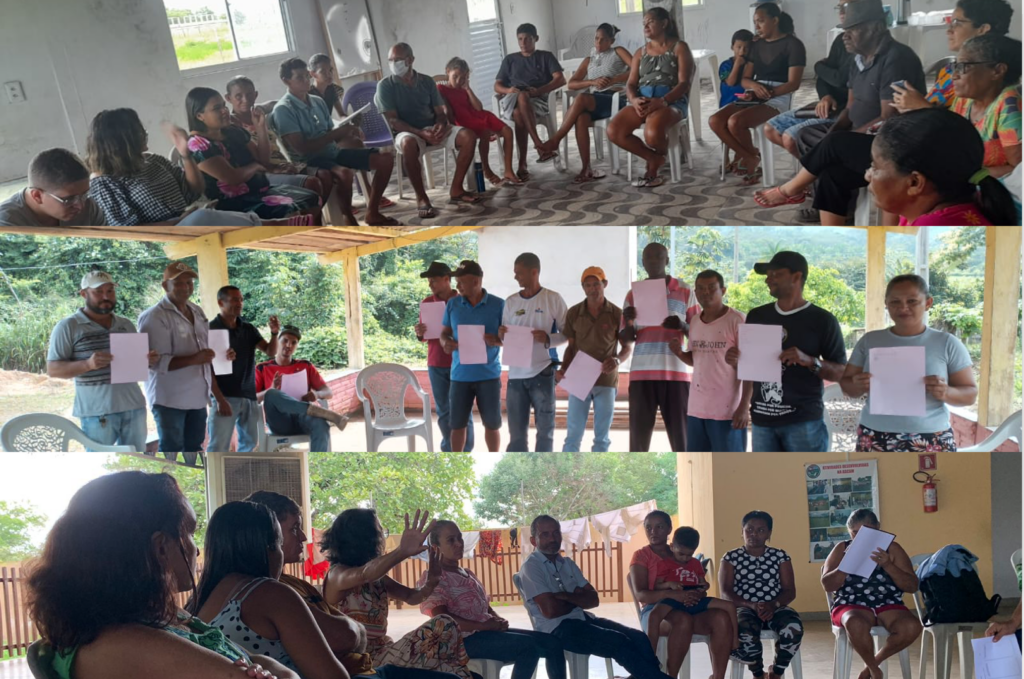
To move forward, we selected 10 communities (or group of communities developing project ideas together) with brilliant ideas to transform them into a fundable project. Of these, at least 5 will receive fundings to be developed – but we are also connecting with other partners and donors (write us if you also want to support these communities!) to support the highest number of communities possible.
The first connections were already make, such as with the local university UFRA (Federal Rural University of the Amazon), Parauapebas campus, which is close to the Frei Henri peasant community and excited to present the students to real problems the local community is facing to develop their regenerative agriculture in the best way possible.
Students and professors came to collect information needed for the project proposal about various areas from the community. The group in my area seemed to be doing this for the first time. They were really nice to me, we had some good conversations.
Francisca, Frei Henri peasant community
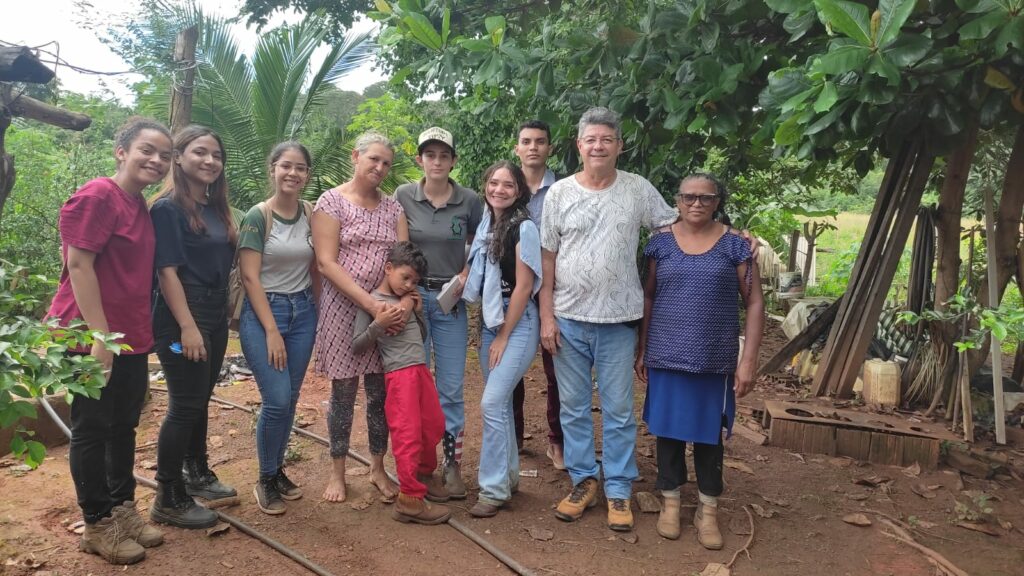
Picture: Professors and students from UFRA (Federal Rural University of the Amazon) visit Frei Henri peasant community on March 29th of 2023.
The following communities were selected to be supported in the pre-project phase:
- Zutwia and Barreirinha Guajajara villages at Arariboia indigenous territory, Maranhão
- Campo de Perdizes fishers/foraging community, Maranhão
- Frei Henri peasant community, Pará
- Kamapã Apurinã village at Boca do Acre indigenous territory, Amazonas
- Sucupira do Norte foraging community, Maranhão
- Pataxó Hãhãhãe indigenous community, Caramuru Paraguassu indigenous territory, Bahia
- Dalcídio Jurandir peasant community, Pará
- Deus te Ama peasant community, Pará
- Santo Antônio foraging community, Maranhão
- Canto Grande peasant community, Maranhão
We are excited to see the first results of the program Pollinating Regeneration. Together, communities multiply their positive impact in an extraordinary rate, pollinating all around, just like the meliponini!
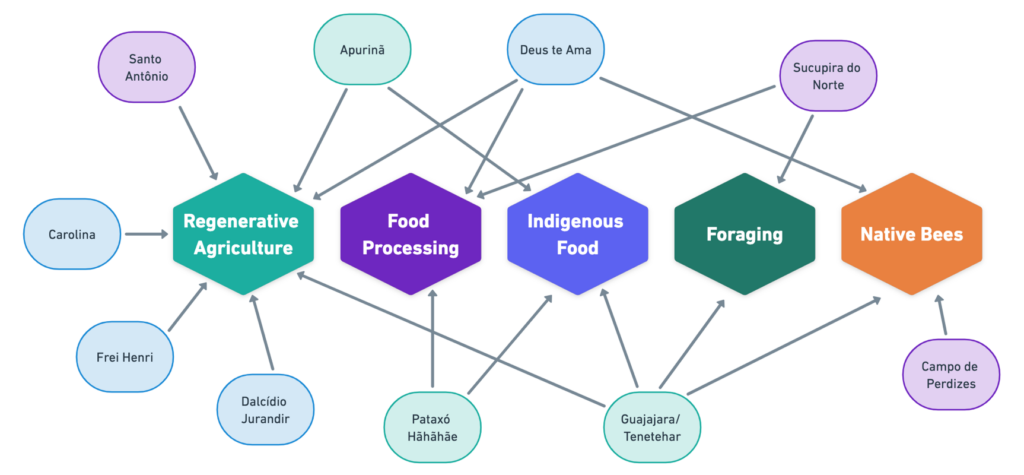
Your donation can have a positive impact on the world!
Subscribe to receive our Newsletter!
Find us also at Linkedin, Facebook, Twitter or Instagram
www.meli-bees.org
❤️

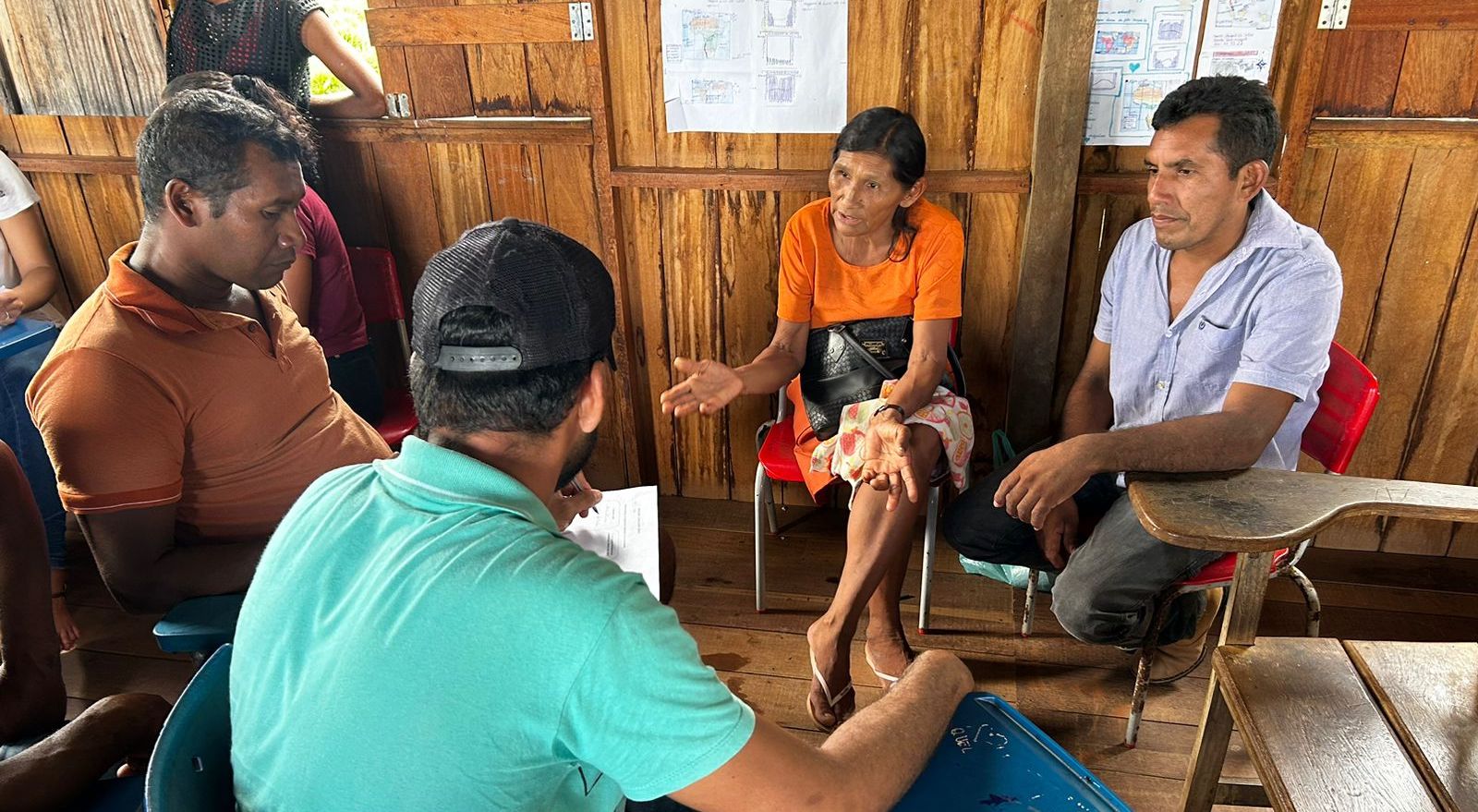
5 Replies to “Pollinating Regeneration: Ideation Phase”